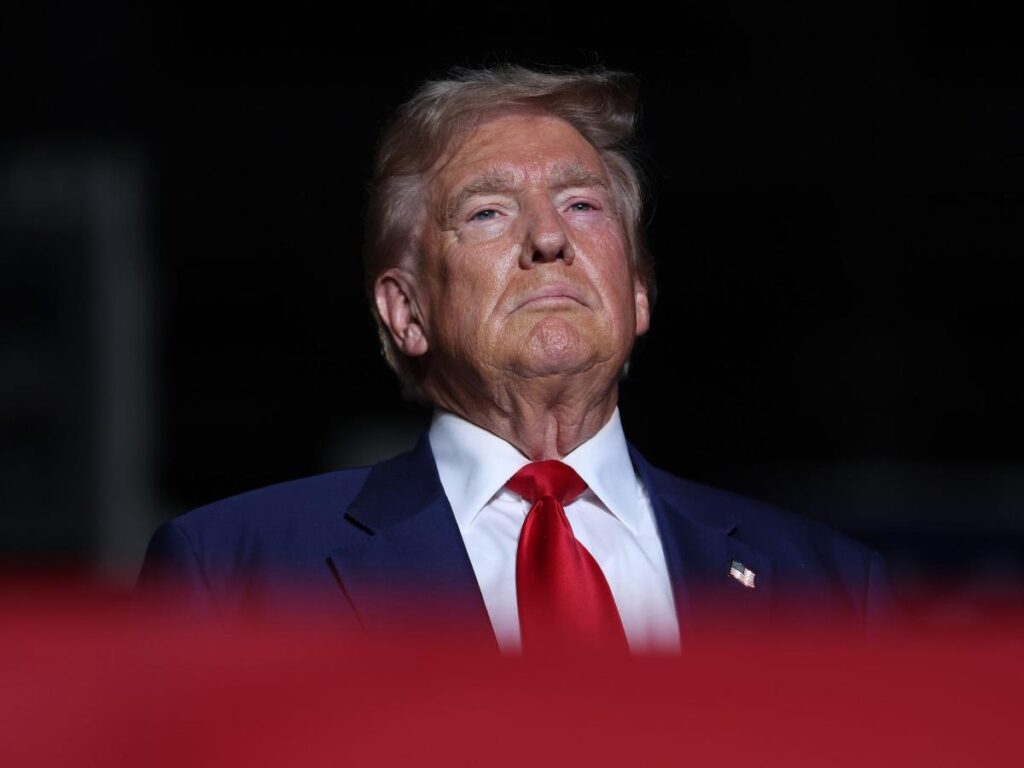Former President Donald Trump recently expressed his belief that Gaza has the potential to be transformed into an exceptionally beautiful destination, once the ongoing conflict subsides. On a conservative talk show, Trump elaborated on his perspective as a developer, noting that Gaza’s coastal location offers unique opportunities for development. He pointed out that the region, even before heightened tensions and violence, could benefit significantly from strategic planning and investment. Trump emphasized that Gaza’s natural beauty – “the weather, the water, the whole thing, the climate” – could become highlights if they were exploited correctly. His comments come amid the tumultuous backdrop of a year-long Israel-Gaza war that has seen significant loss of life and ongoing devastation.
While Trump’s opinions resonate with some, they echo sentiments previously expressed by his son-in-law, Jared Kushner, who suggested relocating civilians during any potential redevelopment efforts. Kushner contended that investment in educational and innovative initiatives would have been more beneficial than the substantial resources allocated to military endeavors like tunnel construction. His comments further substantiate a broader interest among some political figures about Gaza’s redevelopment post-conflict, highlighting a vision for the region wherein rebuilding becomes a focal point for economic growth and stability. This line of thinking, however, raises ethical questions regarding the plight of displaced civilians amidst reconstruction plans.
Despite these visions for Gaza’s future, the ongoing conflict remains dire, with around 42,000 casualties reported in Gaza alone. Both President Joe Biden and global leaders continue to call for diplomatic resolutions, yet a ceasefire remains elusive. The surge in Israeli airstrikes on Lebanon following Iranian provocations adds further tension to an already complex geopolitical scenario. Trump has claimed that such conflict escalations would never have happened under his administration, suggesting that his leadership style might yield different results, although specifics regarding his proposed strategies for peace remain vague.
As discussions about rebuilding commence, several challenges emerge related to Gaza’s governance and the fundamental needs of its population. Speculation regarding the redevelopment of Gaza often oversimplifies the severe socioeconomic issues that exist there. Prior to the war, more than half of Gaza’s residents lived in poverty, and the urgency of addressing basic human needs often overshadow aspirations for luxury development. Skepticism exists regarding how feasible grand redevelopment plans will be, especially without a stable and independent governing structure in place. The grim reality suggests that before a luxurious future can be envisioned, urgent humanitarian considerations must be prioritized.
The financial implications of rebuilding Gaza are substantial, estimated at anywhere between $50 billion and $80 billion. Experts indicate that any reconstruction effort would need to resemble the Marshall Plan, which successfully revitalized Europe after World War II, in scale and scope. This level of investment raises questions about funding sources, both public and private, and the political will required to kickstart significant rebuilding efforts. The uncertain future exacerbates the situation; without a clear resolution to the ongoing conflict, potential investors may hesitate to commit funds to the region, fearing further destabilization and violence.
As the international community grapples with Gaza’s future, larger themes of stability, investment, and governance remain intertwined with grassroots humanitarian needs. Developing a comprehensive post-war plan is essential, but navigating the complex political landscape still poses significant obstacles. While figures like Trump and Kushner articulate ambitious visions for Gaza, aligning these aspirations with the needs and rights of the Palestinian people will be critical to any successful reconstruction effort. Ultimately, the world watches closely, hoping for a peaceful resolution that honors the rights of all who inhabit the region.

